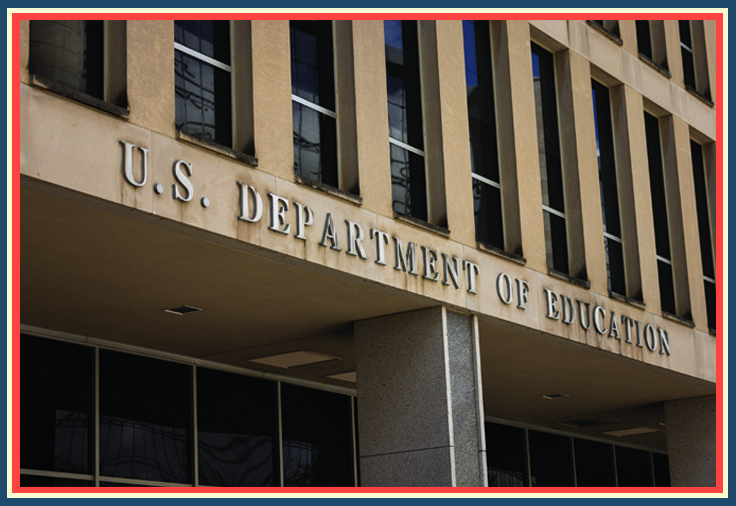DOJ says it will not defend the program in federal court

The Trump administration has determined that a federal program that doles out $350 million a year to “Hispanic-Serving Institutions” is unconstitutional and will not defend it in court, the Washington Free Beacon has learned. The move will sunset one of the largest race-based grant programs in the United States and could be the death knell for scores of similar programs throughout the government.
The Department of Education reserves hundreds of millions of dollars in grants for Hispanic-Serving Institutions (HSIs)—universities where at least 25 percent of undergraduates are Hispanic or Latino—that non-HSIs can’t access. In June, the state of Tennessee and Students for Fair Admissions sued the program, which was established by Congress in 1965, saying it was unconstitutional to condition grants on a school’s racial makeup. They also noted the program creates financial incentives for schools to engage in affirmative action, which the Supreme Court outlawed in 2023.
When an act of Congress is challenged, the Justice Department typically defends it in federal court. But this month, the department notified House Speaker Mike Johnson (R., La.) that it would not be going to bat for the HSI program.
“I write to advise you that the Department of Justice has decided not to defend the constitutionality of certain provisions of the Higher Education Act of 1965,” Solicitor General D. John Sauer wrote in a letter reviewed exclusively by the Free Beacon. “The Department of Justice has determined that those provisions violate the equal-protection component of the Fifth Amendment’s Due Process Clause.”
The letter likely spells the end for the HSI grants, which the Trump administration is now taking steps to wind down. A senior official in the Education Department told the Free Beacon the agency is evaluating three HSI grant programs—Developing Hispanic-Serving Institutions, Promoting Postbaccalaureate Opportunities for Hispanic Americans, and Hispanic Serving Institutions–Science, Technology, Engineering, and Mathematics and Articulation—”to determine the legal path forward.” The $350 million a year spent on those grants does not include an additional $50 million dispensed by the National Science Foundation.
While the Justice Department letter only applies to HSIs, it signals how the Trump administration could gut other congressionally established programs that dole out grants based on an institution’s racial makeup. Last year, for example, the Department of Education awarded more than $12.5 million through its Predominantly Black Institutions (PBI) Competitive Program, which is only open to schools with at least 40-percent black enrollment. A similar program provides grants to schools that are at least 10-percent “Asian American and Native American Pacific Islander.”
Congress wouldn’t need to repeal those programs in order for the Trump administration to shut them down. The Justice Department could simply take the plaintiff’s side each time a program is sued, letting legal inertia run its course.
The administration would still defend programs for Historically Black Colleges and Universities (HBCUs), the senior Education Department official said, noting that a school’s HBCU status does not depend on its present racial mix.
“The quota-based eligibility formula for HSI programs distinguishes them from HBCUs,” the official said. “HBCUs do not present the same constitutional concerns as HSIs because of the historical role HBCUs played in educating Black Americans in the post-civil war era.”
HSI programs have encouraged race discrimination in hiring as well as admissions. In an effort to meet the 25-percent threshold, the University of California, San Diego, launched a “Latinx Cluster Hire Initiative” in 2021 on the grounds that more minority faculty would help attract Hispanic students.
“This proposal seeks to develop a critical mass of faculty that will contribute to academic programs and course offerings designed
to address the Latinx Diaspora,” a proposal for the cluster hire reads. “The disproportionate underrepresentation of Latinx faculty parallels the weak presence and availability of course curricula that address the Latinx diaspora, domestic historical context and migration experience.”
















